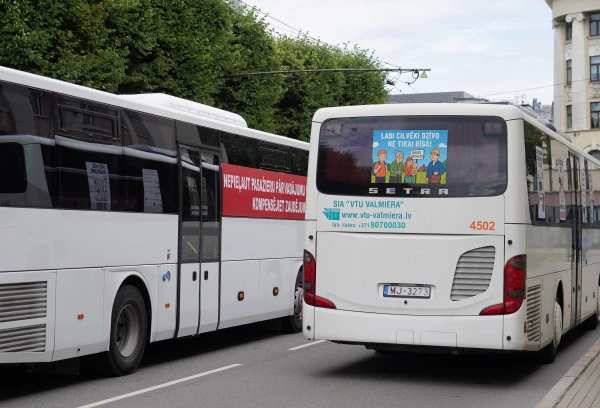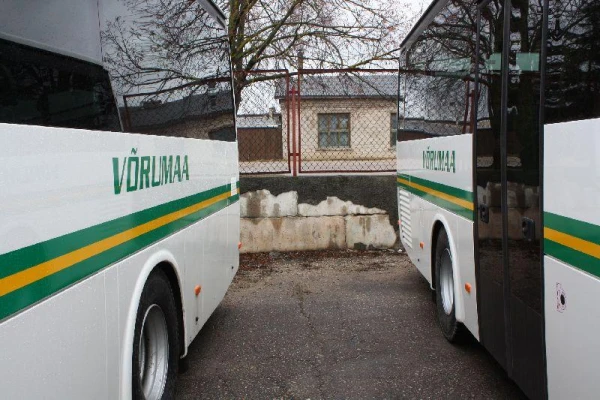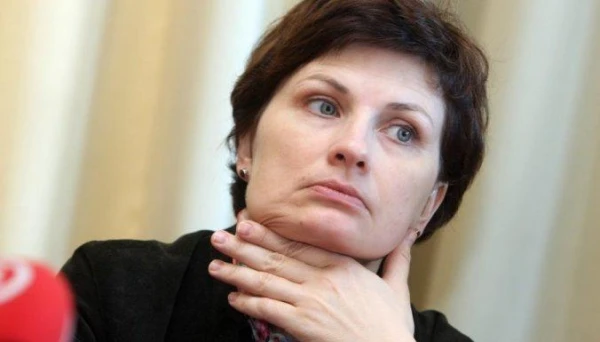
How to strengthen the competitiveness of the Latvian education system? A perspective from the founder of the international school "Premjers" Roman Diakon
Recently, there has been much discussion about ways to strengthen the competitiveness of our higher education, as there are risks that Latvia as a state may lose its higher education sector. On one hand, there are fewer young people in Latvia, and on the other hand, more of them prefer to study abroad for various reasons. I believe that strengthening the competitiveness of education should start in secondary school, as strong secondary education will allow us to retain more students in Latvia and improve the overall level of education.
As the founder of an IB school, I see in everyday life lessons where content, thinking, and language use are at an international level. As is known, education in the IB (International Baccalaureate) program is conducted in English (students also learn the Latvian language and traditions), and this provides several advantages for students in developing their future careers.
Knowledge of the English language helps to achieve a high level in STEM (science subjects) much faster.
The connection to the labor market and the dominance of the English language in Europe. Whether we like it or not, English is the "lingua franca" of the European educational and work space. In 2023, 89% of secondary school graduates in the EU studied English as a foreign language. However, if the content and thinking of education are conducted in English, young people reach the level necessary for STEM, business, and creative industries much faster. Everyone knows that a successful international career is unthinkable without good knowledge of the English language. The International Baccalaureate programs teach students to think in English, creating significant advantages in their careers.
Of course, we are a country whose educational policy mainly strengthens education in Latvian, but IB programs in English are a targeted addition that helps attract and retain international families, bring back diaspora children to Latvia, and prepare young people for global competition. Experience shows that children can confidently maintain a high level of Latvian while studying IB courses in English if the school wisely plans language support. Our school's experience also shows that many returnees, who previously lived in the UK, Ireland, or other Western European countries, use international schools for a more successful reintegration of their children in Latvia. The use of international schools does not harm the academic performance of children; however, they gradually master Latvian and integrate more successfully into the local environment.
The IB Diploma Program (DP) is a quality indicator and is immediately recognizable by its name. Its acceptance and competitiveness among students is confirmed by official statistics: we already have 10 IB World Schools, 9 of which offer the DP. This is not a niche product, but a global quality standard recognized by universities in Europe, the USA, and Asia. The fact is that all IB schools have very strict international accreditation standards. These standards apply not only to the staff but also to the material and technical base, whether it is a modern chemistry laboratory or the latest computer class for mastering artificial intelligence solutions.
We know that some young people in Latvia will still go abroad to continue their studies after finishing secondary school. Our goal is to ensure that students have access to truly competitive universities where they can acquire knowledge and skills unavailable in Latvia. One of the favorite countries for residents of Latvia to study is Finland, and holders of the IB diploma are accepted into Finnish universities without exams. These graduates of world-class higher education institutions can be those who return to Latvia and apply their professional skills to contribute to the country's development.
Latvia's goal should be to ensure that as many IB Diploma Program students as possible prefer to continue their studies in Latvia after graduation. However, this can only be achieved if high-quality education and an international learning environment, to which young people are accustomed during the IB program, are also offered at universities. This year, in collaboration with the Riga School of Northern Countries, we launched a global bachelor's program in entrepreneurship, where we have lectures from professors from the best universities in the world (Oxford, etc.). This is a very high-quality program of world level, and we intend to continue developing it. I hope that other higher education institutions in Latvia will follow this example, as only together can we make the higher education sector in Latvia more competitive. It is clear to everyone that the higher education sector cannot exist solely with Latvian students, so it will be necessary to attract students from abroad. To compete seriously in the EU education market, we need to improve the quality of education.
If we analyze global data, we see that from 2020 to 2024, the number of IB programs worldwide has increased by 34.2 percent. If Latvia does not want to lag behind, we must expand the use of IB programs in secondary education.
What further steps do I see for the development of IB programs in Latvia? In developing the network of schools, it would be necessary to purposefully support municipal and private founders who introduce IB MYP/DP in English. If in 1971, when the IB was founded, 100% of all schools were private, now many countries recognize the advantages of the IB program and participate in implementing programs into daily practice. I believe that these programs would be beneficial not only for residents of the Latvian capital but also for students in Liepaja, Daugavpils, Valmiera, and Jelgava.
Equally important work is the preparation of teachers; it would be necessary to finance the development of training and methodology for IB educators. Until now, the training of IB educators has mainly been undertaken by private schools themselves, helping to prepare teachers who can pass through the established IB quality sieve. It should be noted that a significant portion of the teaching staff in IB schools consists of foreigners for whom English is their native language; however, if we want to achieve a new impetus in raising the average quality of education, it is necessary to prepare new IB teachers here in Latvia.
Undoubtedly, a very important task is the study of the Latvian language as the state language in IB schools so that young people, while learning in English, do not lose connection with the cultural space and Latvian traditions. Unfortunately, the biggest problem here is the lack of Latvian language teachers. In the labor market, Latvian language teachers are in high demand; however, few choose it as their life’s work. If the state created additional incentives for training Latvian language teachers, everyone would benefit.
Finally, collaboration with universities is necessary, as it is essential to align IB DP courses with STEM programs at local universities and entrepreneurial initiatives, as well as places for internships. Here, a significant responsibility lies with the private sector, as well as with large state enterprises, to ensure that students are confident that they have access to internship opportunities in Latvia and the possibility of making an international career without leaving our country.












Leave a comment